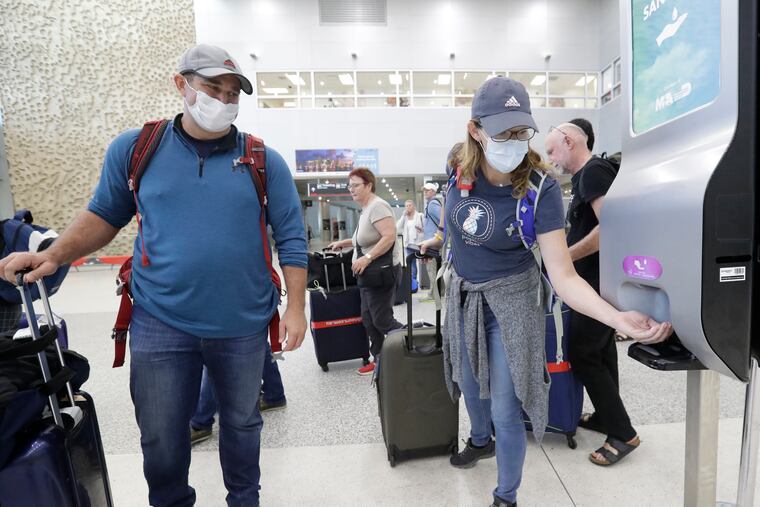State Department says 13,500 Americans stranded abroad have asked for help
The State Department is preparing to evacuate thousands of Americans stranded overseas, with 16 flights scheduled in the next five days and more to follow, officials said Monday.

The State Department is preparing to evacuate thousands of Americans stranded overseas, with 16 flights scheduled in the next five days and more to follow, officials said Monday.
The officials also said that about 30 State Department employees posted in embassies and consulates abroad have tested positive for the novel coronavirus. Small numbers of employees in six U.S. locations - Washington, Houston, Boston, New York, Seattle and Quantico, Virginia - have also tested positive.
A task force assembled by the State Department is working on getting flights out for the 13,500 Americans who have reached out asking for help, officials said.
"Consider whether you are ready to ride out an undetermined period of time where you are now, or do you want to go to the United States to wait out events," a senior State Department official said of the advice he is telling diplomats to advise Americans. "If it's the latter, do so now, and that last bit is all caps."
The effort to repatriate Americans has become the main focus of the State Department as it has suspended all routine visa operations and reassigned personnel to the often-complex task of getting people out of countries as borders and airports close.
Many Americans in countries that have imposed travel restrictions have complained that the diplomatic missions have not been reachable or provided inadequate assistance.
Roughly 10 million Americans are expatriates who reside in foreign countries and an unknown number are tourists or abroad on business trips. The State Department already has evacuated 5,000 Americans starting with about 800 flown out Wuhan, China, where the virus originated.
A second official said the State Department expects to evacuate at least 1,600 more Americans over the next five days.
"We prioritize people, taking account of their vulnerability," the official said. "If somebody is 70 years old and has an underlying condition such as diabetes or heart disease, that person has priority over a hale and hearty 20-year-old."
The State Department has adopted new policies for voluntary, authorized departures, so some diplomats and civil servants have returned to the United States. They have been assigned to help evacuate Americans. Other employees have also been enlisted, including some who normally work on economics, diplomatic security, public affairs and legislative affairs.
The officials, who spoke on the condition of anonymity under State Department rules for briefing reporters, said the window is rapidly closing for commercial flights. In some places, civilians have been flown out on U.S. military flights when space was available. The State Department is working with the Defense Department to see if more flights and spaces can be arranged.
Officials also are working with foreign governments to arrange evacuations on private chartered flights. Flights taking undocumented immigrants back to their countries also are returning to the United States with American civilians.
"We're hearing from people in very remote parts of the world," the first official said. "It's complicated."
In Peru, for example, diplomats are trying to move Americans out of areas reachable only by airplane, at a time when the Peruvians have shut down internal air travel. International flights are limited because the civilian side of the Lima airport has been closed, and the military part of the facility has less capacity.
“I hesitate to guarantee we can move every person,” the official said. “But we will move very large numbers.”